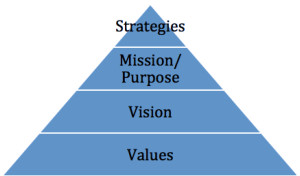Giving Your Best
“My grandfather said to me, ‘Give the world the best you have, and the best will come back to you.’[1]
Upon reading this, a particular family-business story came to mind: A friend of mine, the youngest sibling in a second-generation family business was frustrated by his father’s strong-minded control and by his older siblings’ apparent apathy. He saw that rather than giving their best, his siblings were showing up for work daily but purposefully only “treading water” until they were able to take control of the business.
My friend had left the business once and was about to again because he was unable to give his best within the confines of the family situation.
This complex situation might well benefit from counseling. But my purpose in writing this blog entry is solely to draw awareness to the lost potential for multi-generational family legacies when family members are not raised in a culture of giving their best in whatever role life asks of them.
________________
[1] Simmons, Annette, The Story Factor, Secrets of Influence from the Art of Storytelling, p. 9, Annette Simmons. Basic Books. 2001.

